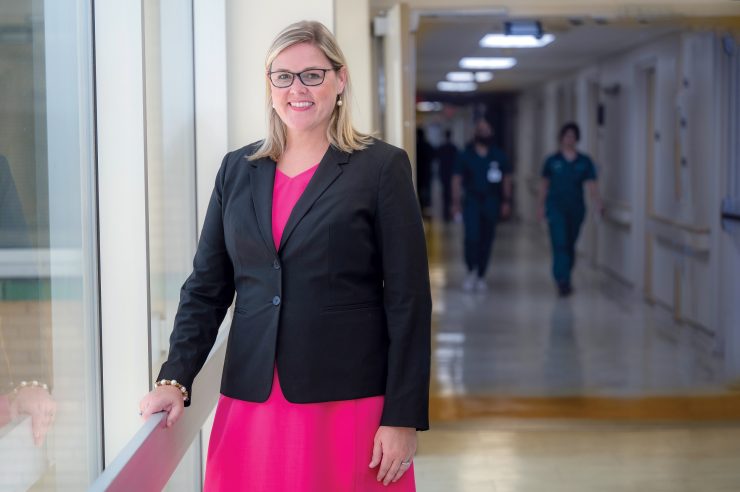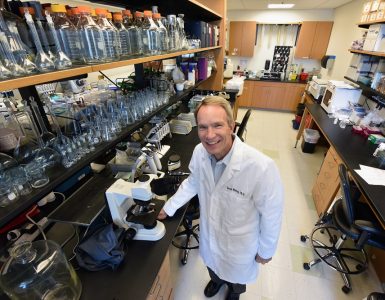A nationwide assessment of Obstetrics and Gynecology residency programs reveals the need for more training in how to provide the best care for women going through menopause, according to investigators at the Medical College of Georgia.
“When you look at projections over the next few decades, by 2060, there will be around 90 million women in the US alone, who will be in the post-menopausal range,” says Jennifer Allen, MD, associate professor and director of the Obstetrics and Gynecology Residency Program at MCG and Wellstar MCG Health. “Yet it’s a tiny fraction of the curriculum, if any at all, in most OB/Gyn residencies. Compare that to something like pregnancy. In 2020, there were about 3 million live births, but we teach about pregnancy every single day in residency training.”
This is not a new problem, Allen says, noting that she received very little menopause education during her own residency at MCG and Wellstar MCG Health. It was not until she began practicing that she realized the enormous need. She sought out additional training and became certified as a menopause practitioner from the North American Menopause Society — one of only four in Augusta and the surrounding area. She also created lectures that she offers to residents at MCG and Wellstar MCG Health, and she began having them spend time rotating through her menopause clinic. “Our curriculum really needed to be built up,” she says.
When Allen became director of the OB/Gyn Residency Program in 2020, she set out to do just that, in Augusta, and nationwide.
Allen recently surveyed 145 residency program directors across the country. Of the 99 who responded, almost all – 93% — strongly agreed that residents should have access to a standardized menopause curriculum, she recently reported in Menopause, the journal of the North American Menopause Society. Only 31% of programs reported having any menopause curriculum at all.
“A lot of program directors don’t actually practice a ton of menopause medicine themselves, so it is hard for them to figure out how to teach residents about it,” she says. “Unless you have a menopause expert or someone having a menopause clinic at your institution, that’s a challenging thing to teach your learners. That is the basis for what I hope to do in the future, which is to help create a national curriculum.”
As a member of the Education Committee of the International Menopause Society Allen explains that there is a system in place for practicing providers called IMPART, short for International Menopause Society Professional Activity for Refresher Training, which features eight online training modules. “We are trying to modify and expand those modules to meet resident learner needs and that way we’re not completely reinventing the wheel. I’m hopeful that this is going to finally move the needle in a forward direction.”
More menopause education could also be helpful to other types of physicians — primary care providers like family medicine physicians or internists, and even subspecialists like endocrinologists, for example, because their female patients could present with symptoms in their offices first.
Menopause symptoms are more than the signature hot flashes, Allen says. Women can experience symptoms from head to toe, including things like sleep disturbances, hair, nail and skin changes, bone loss, mood instability, depression and anxiety. And treatment options can include both hormone and non-hormonal therapy.
“When a physician is well informed about all of these things, then the patients get better counseling, they learn about safe options, and can make the best joint decision with their doctor about how to best manage their care,” she says. “Without menopause education for physicians, patients may get a response such as ‘Well, that’s just aging’ or ‘That’s menopause and you’ve just got to deal with it’. That’s not fair to our patients. They deserve better care, so that’s my goal — better training for physicians and ultimately improving patient care.”










